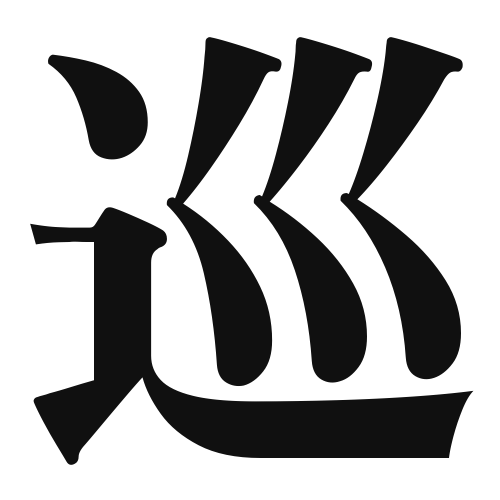1. Overview of Meaning
The kanji “巡” (jun) generally means “to circulate,” “to go around,” or “to patrol.” It conveys the idea of movement in a circular or repetitive manner, often associated with routes or paths.
2. Formation and Radical
Formation of the Kanji: The kanji “巡” is a compound character (会意文字) that combines elements to convey its meaning. It consists of the radical for “road” (辶) which indicates movement, and the character “巡” itself, which adds the notion of going around.
Radical: The radical of “巡” is 辶, which is related to movement and paths.
3. Examples of Usage
Common Words and Phrases: Some frequently used words that include “巡” are:
- 巡回 (じゅんかい, junkai) – patrol or round
- 巡査 (じゅんさ, junsa) – police officer
Example Sentences in Daily Conversation:
- 警察は街を巡回しています。 (The police are patrolling the city.)
- 彼は毎朝公園を巡るのが好きです。 (He likes to walk around the park every morning.)
4. Synonyms and Antonyms
Similar Kanji: A similar kanji is “回” (kai), which also means “to turn” or “to go around,” but it emphasizes the act of turning rather than the idea of a route or patrol.
Opposite Kanji: An antonym could be “直” (choku), which means “straight” or “direct,” indicating a lack of circular movement.
5. Cultural and Historical Background
Relation to Japanese Culture: The concept of “巡” is significant in Japanese culture, especially in the context of festivals and rituals where processions or rounds are made, symbolizing community and continuity.
Proverbs and Idioms: One common saying is “巡り合わせ” (meguriai), which refers to a fateful encounter or the idea of destiny bringing people together, highlighting the interconnectedness of life.
